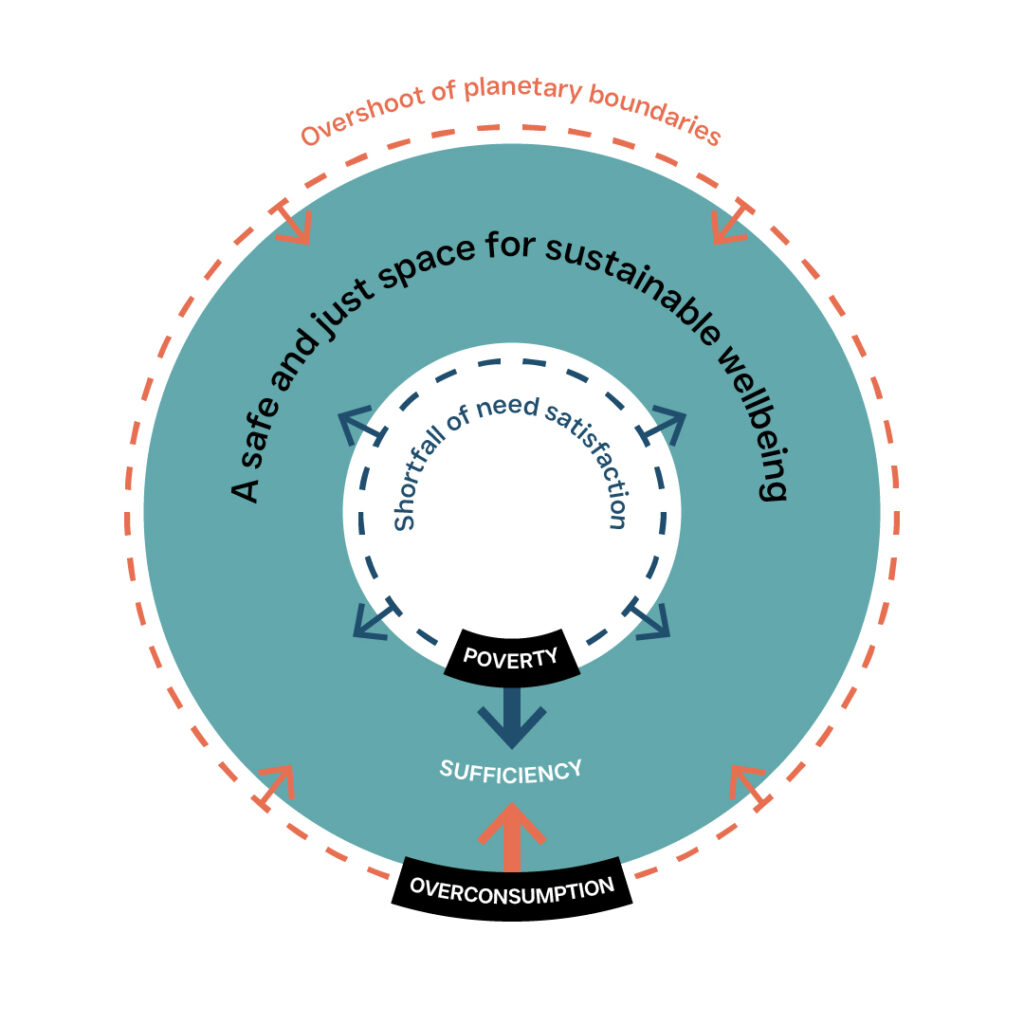
What is sustainable wellbeing? And how can we measure it? ToBe first work package has worked on these major questions when identifying suitable theories and indicators for sustainable wellbeing, as part of building the theoretical framework for the project. Throughout the first year of the project, WP1 researchers collaborated in exploring the questions, both through desk research and expert workshops. In a recently published ToBe Policy Brief “Time ToBe Transformative”, we suggest that wellbeing-enhancing policies and indicators should measure wellbeing outcomes by focusing on the satisfaction of three universal human needs: health, relatedness, and autonomy. We also argue that sustainable wellbeing is based on sufficiency as it requires a balance between poverty and excess.
Sufficiency constitutes the backbone of ToBe´s theoretical framework. In November, ToBe researchers Éloi Laurent and Tuuli Hirvilammi organized a workshop “Exploring post-growth convergence – sufficiency analysis and policies” in Paris, sponsored by OFCE-SciencesPo. Speakers representing various ongoing initiatives around sufficiency included Dan O´Neill (University of Barcelona), Éloi Laurent (SciencesPo), Mladen Domazet (IPE), Dave Abson (Leuphana University), Tuuli Hirvilammi (University of Tampere), Milena Büchs (University of Leeds), Lassi Linnanen (LUT University) and Yves Marignac (Institute négaWatt).
The inputs of the workshop contributed to the latest publication from WP1. In the report, Éloi Laurent maps and analysis three main contemporary postgrowth schools degrowth, doughnut economy and wellbeing economy and argues that they all find their convergence point in the notion of sufficiency. Tracing the origins back to Greek philosophers, the report presents the history of sufficiency until its definition by IPCC in 2023. Going beyond the theoretical understanding of the notion, Laurent discusses the relevance of institutional sufficiency policies such as universal basic services.